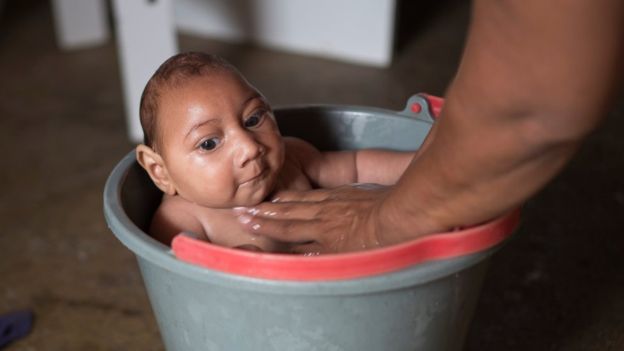By Julia Tuck
Scattered throughout the city of Rio de Janeiro, Brazil looms the Aedes mosquito- and he’s ready to bite. This species of mosquitoes is commonly referred to as “the Yellow Fever mosquito.” Recently, these mosquitoes have become a nuisance in Brazil and have been the root cause of the Zika virus.
The Zika virus has become a paramount concern to mainly women who are pregnant or hope to become pregnant. This is because the virus is known to spread to the unborn fetus and cause birth defects. The virus is notorious for attacking parts of Brazil and regions of South America.
But that’s not all.
According to the CDC and Time Magazine, the virus has already been reported in Central America, various Caribbean islands and Mexico and is projected to spread to the US in the upcoming year due to infected persons being hospitalized in areas of and the possible migration of mosquitoes to Northern warmer climates, such as Texas and Florida.
Although the virus is considered benign to the average person, there are still distinct symptoms which should be noted for further treatment. The symptoms of the Zika virus include fever, rash, joint pain, and conjunctivitis (red eyes).
Jade Coelho de Miranda, a Brazilian college student, discusses her experience with Zika first hand, as first reported by The New York Post. She believes to have contracted it after hanging with her friends in a park in Rio which was infested with Aedes mosquitoes. She claimed to have received multiple bites on her body. At first, she was not concerned, but then more sinister symptoms attacked her. Jade admit that “[Her] whole body felt immobilized. [She] started having difficulty moving [her] hands — feeling like they were frozen. [Her] eyes became irritated too”
Then, Jade was rushed to the hospital and after several diagnostic tests, she was confirmed to have the Zika virus.
The news did not initially startle her as she had heard of previous cases within her neighborhood but did not know much about the virus. She presumed it would heal with medication after time and would eventually leave her system.
Jade was wrong.

The doctors prescribed her with medication to relieve her symptoms and told her of her fate for a future pregnancy possibly with the risk of Microcephaly, a condition where a baby’s head is born abnormally small. Women who suffer from the Zika virus who choose to have children, are at risk to have a child with birth defects. Victims of this virus carry it in their blood and as of now, there is no way to detract it.
Jade was determined to move forward from her experience. Although there is no cure, she is currently being treated for her symptoms. She calls to victims of Zika by saying, “While I’m not pleased that Zika is spreading, I am more hopeful that something will change now that it has garnered international attention.” She holds high hopes for the future and the possibility of a cure for this virus.
As of now, there are only definite precautions in terms of contracting the Zika virus. The CDC recommends wearing fully clothed long sleeves and long pants when traveling to parts of South America, Central America, or any mosquito infested locations. Insect repellent is also essential to carry when traveling to these locations to ensure that proper precautions have been taken.





























